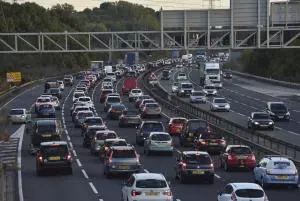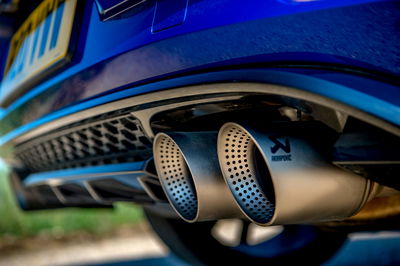'Pay-As-You-Go' Car Tax Via GPS Tracking Recommended By Government Committee

A fundamental change to motoring in the UK could be on the horizon. With the adoption of electric vehicles on the rise and plans to ban the sale of new combustion cars by 2030 the Treasury is facing a £35 billion black hole in lost fuel duty and vehicle tax. That gap has to be plugged somehow, and it’s looking like the preferred option is road pricing.
The Transport Committee of MPs made the recommendation in an extensive report published on Friday, for which the government has two months to respond. It describes the use of “telematic technology” which could track when, where and how far you drive. The costs could be “dynamic,” with users charged more to travel in rush hour and typically busy areas. The “vehicle type and size” would be taken into account, too.

‘Black box’ logging systems already exist for insurance policies aimed at young drivers, and are controversial due to the sometimes inaccurate data they provide. The report says that these products show consumers are “are prepared to provide data access in exchange for efficient services and systems”. It’s also been suggested that one unit could provide data for both insurance and road pricing payments.
Of that £35 billion the Treasury generates every year from motorists, about £7 billion is made up of vehicle excise duty, with the remaining £28 billion from fuel duty. All told, it amounted to four per cent of all tax receipts last year. It isn’t just the missing money that’s of concern, however.

While the up-front cost of buying an electric vehicle is still high, they’re substantially cheaper to run than the average combustion car. Only a few days ago we were noting that a BMW i4 can go more than 250 miles for less than £10 when charged at home, despite being as fast as an M3. This drastically reduced cost of motoring means more car use, the government predicts.
“Cheaper driving is likely to lead to more driving,” the report says, adding that in 2018 the Department for Transport forecast a 51 per cent traffic increase between 2015 and 2050 linked to a rise in EV use. Road pricing, it’s hoped, would prevent this, and help the government achieve its aim of 50 per cent of urban journeys being undertaken on foot or by bicycle by 2030.

Along with privacy concerns, talk of tracking motorists will inevitably fuel worries that Big Brother might also be keeping an eye on how fast you’re going. In this latest report, at least, speed is not mentioned.
In terms of how much it’ll cost the average user, the Committee insists any implemented road pricing schemes must “be revenue neutral with most motorists paying the same or less than they do currently.”

Commenting on the report, the RAC’s head of roads policy Nicholas Lyes said that according to the organisation’s research, 45 per cent of drivers think a “pay per mile” setup “would be fairer than the current regime”. He added:
“Whatever any new taxation system looks like, the most important thing is that it’s simple and fair to drivers of both conventional and electric vehicles. Ministers should also consider ringfencing a sizeable proportion of revenue for reinvestment into our road and transport network.”















Comments
wow, way to go UK
I can see the plus side of this, but want to see more in depth review of this before it comes in. I mean the more cost due to driving during rush hour i don’t think will make there be less cars on the roads. I mean i try avoid rush hour where i can by working flexible hours, but that more for my own sanity of not sitting in traffic.